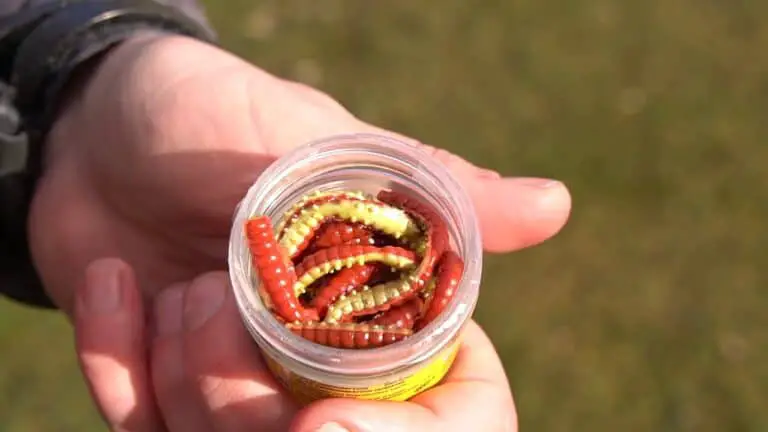The Best Muskie Lakes in Wisconsin – 8 Lakes to Check Out in 2023
Wisconsin has a considerably large concentration of natural lakes, with over 1,300 lakes. These lakes are habitats for various fish species, most of all, Muskies.
If you’re looking to land some of the best muskies in the United States, you’d better start planning a trip out to Wisconsin.
With that many lakes, it may be challenging to figure out which lakes to check out first, so I’ve done some research and compiled a list of the best lakes for Muskie fishing.
The 8 best Muskie lakes in Wisconsin are:
- Big Saint Germain Lake
- Eau Claire Chain of Lakes
- Rainbow Flowage
- Lake Wisconsin
- Boom Lake
- Okauchee and Oconomowoc Lakes
- Delavan Lake
- Lake DuBay
These lakes are known to have large populations of muskies that can grow up to reach trophy sizes. Keep reading to learn more information about the best Muskie lakes in Wisconsin and how to fish for muskies at lakes.
Table of Contents
The Best Muskie Lakes in Wisconsin
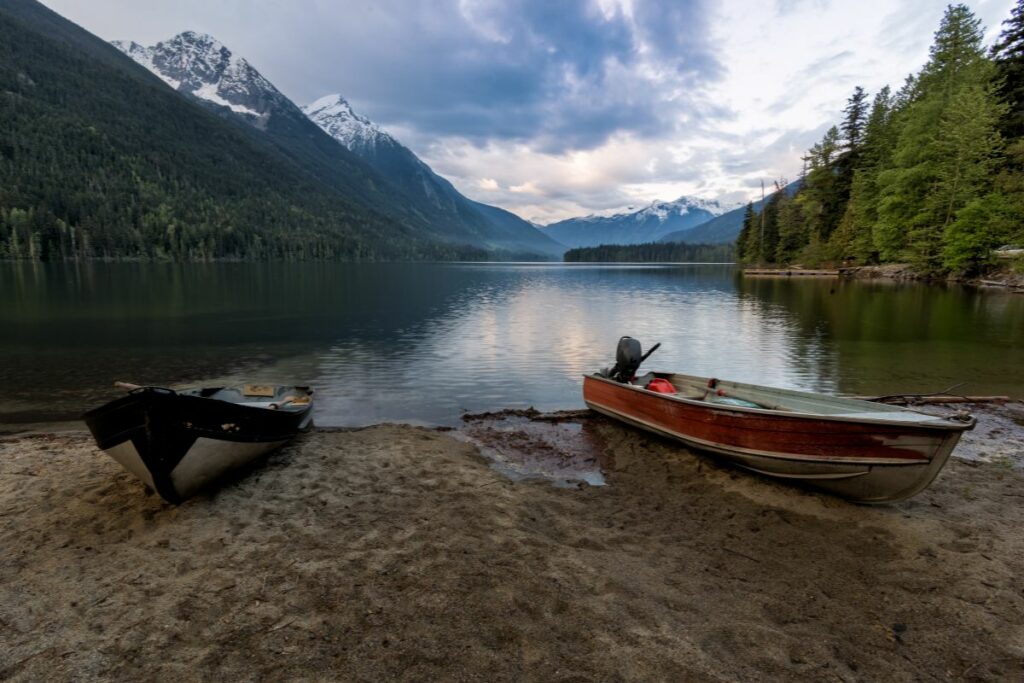
As mentioned earlier, Wisconsin has a large concentration of lakes that are stocked with various fish species. However, 8 of those lakes are considered the best spots for Muskie fishing.
So, let’s take a closer look at each of those lakes and what makes them the best:
Big Saint Germain Lake

The Big Saint Germain Lake spans 1,600 acres; its large size of the lake allows muskies to grow to trophy sizes.
You can target muskies on Lake Saint Germain at any time of the year, but the best time is from August to September.
You can stay in a fishing lodge by the lake during your trip; however, it’s mostly private properties surrounding the lake, so shore fishing isn’t as popular as boat fishing.
If you’re a beginner, it’s recommended to hire a knowledgeable guide before taking a boat out on the lake to increase your chances of landing more muskies.
Eau Claire Chain of Lakes

The Eau Claire Chain in northwest Wisconsin spans about 10,000 acres. It has 11 connected lakes, the largest being Upper, Middle, and Lower Eau Claire.
These 3 lakes are popular for deep waters containing a large population of trophy-sized Muskie fish.
The other lakes on the chain are relatively smaller and more difficult to navigate, but anglers can hire a local guide to help them find the best spots to land Muskies.
Rainbow Flowage
The Rainbow Flowage is an impoundment of the Wisconsin River, spanning 3,153 acres. It’s habitat to various fish species, including Muskies.
The best time to fish for Muskies there is during the early Muskie season, which lasts from August to September. That is because the water gets warm earlier than other lakes in the area, making the fish more active and eager to bite.
You can access the lake from various boat ramps. There are also some campgrounds and lodgings to stay at during your trip.
Lake Wisconsin

Lake Wisconsin spans 7,197 acres. It’s a hot spot for muskies and other fish species, such as bass and crappie.
What makes it popular with anglers is that it’s one of the most convenient fishing locations due to the many resorts, campgrounds, and other tourist attractions in its area.
If you’re specifically targeting muskies, the best time to head there is spring or summer when the water temperature gets warmer.
Boom Lake
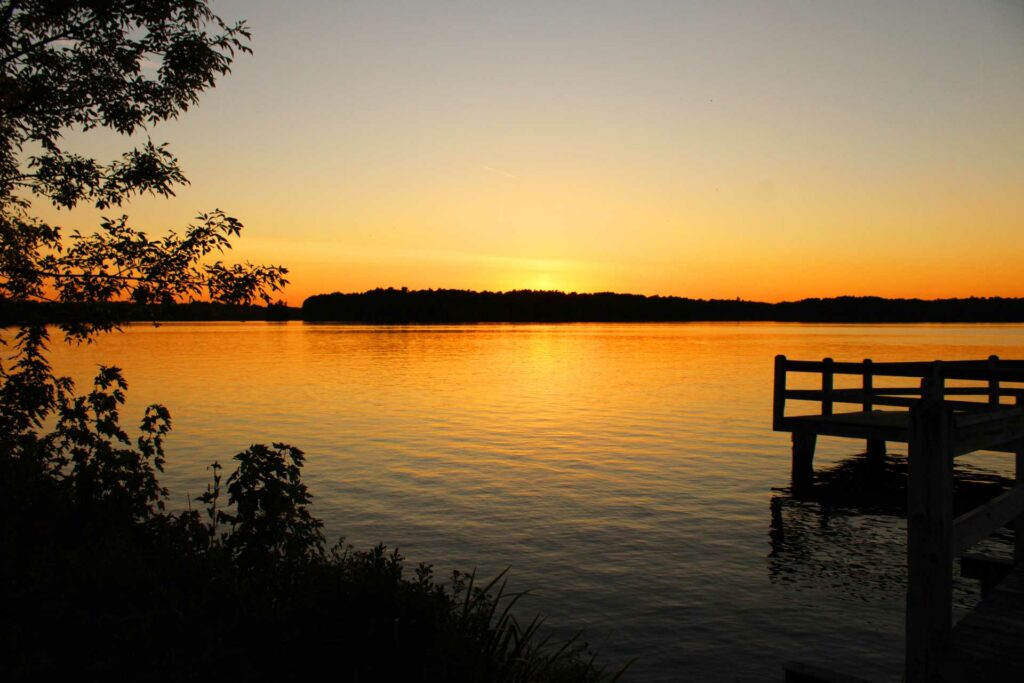
Boom Lake is another impoundment of the Wisconsin River, located nearby the Rainbow Flowage.
It spans only 365 acres, but despite being relatively smaller than other lakes, it still contains a large population of muskies.
Similar to Rainbow Flowage, you can access the lake from various boat ramps. During your trip, you can also participate in the annual musky tournaments held on this lake.
Okauchee and Oconomowoc Lakes

The Okauchee and Oconomowoc lakes are located west of Pewaukee, spanning 1,300 acres and 767 acres, respectively.
Both lakes have a large population of muskies that grow to trophy sizes. A survey conducted by DNR fisheries showed that Muskies found in Okauchee Lake grow to about 51 inches and weigh almost 41 pounds.
Delavan Lake
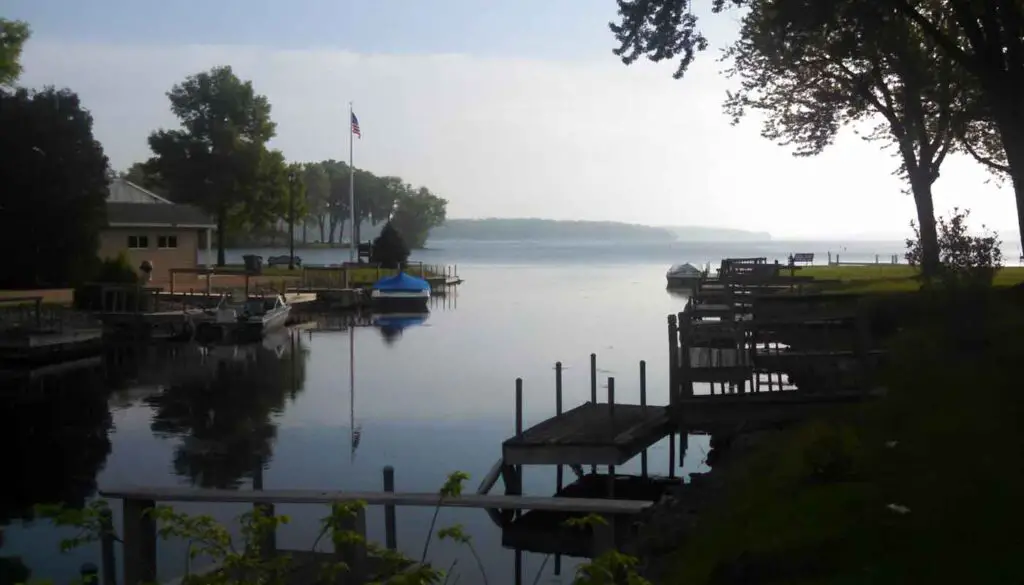
Delavan lake, located in Walworth County, spans 2,000 acres.
The lake is shallow, with weedy areas to provide heavy cover, which makes it a habitat for various fish species, including bass, walleye, and pan fish. It also contains a decent Muskie population, stocked there by the DNR. You can learn more about stocking Muskies here
Lake DuBay
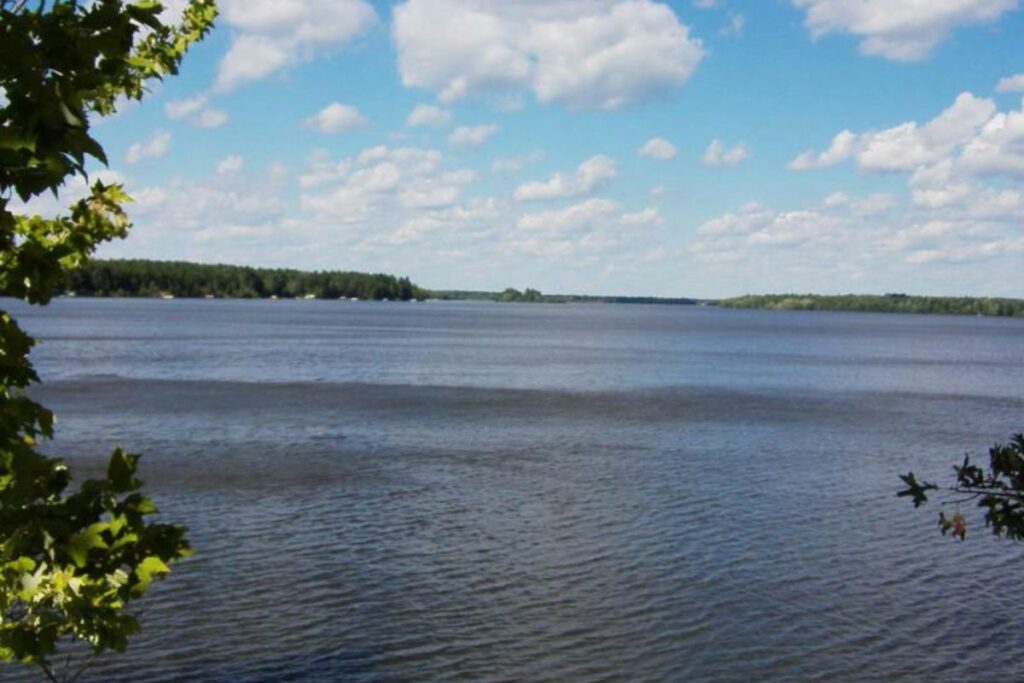
Lake DuBay is another impoundment of the Wisconsin River. It’s considerably larger than Rainbow Flowage and Boom Lake, as it spans 6,830 acres.
It’s a habitat for various fish species, including walleye, smallmouth bass, panfish, and, of course, musky.
Similar to the other impoundments of the Wisconsin River, you can access the lake from various boat ramps.
How to Fish for Muskies in Lakes?

Muskie fish are challenging to catch, no matter how experienced you are as an angler. To fish for muskies in lakes, you need to know exactly where and when to target them. You also need to be prepared with the right kind of gear and bait.
So, let’s break down everything you need to know about muskie fishing in lakes:
Where to Target Muskies in Lakes?
Musky fish generally prefer to stay in one area. When fishing for muskies in lakes, you can target them near areas with thick weeds where they will be hunting for food. You can also target them near shore breaks or structures such as rock piles.
What Is the Best Time to Target Muskies in Lakes?
The best time of the year to target muskies is during late summer, from August to September, which is considered to be the musky season in many lakes. The best time of the day to target them is around dawn and dusk when the temperature is not too cold or too warm. During these times, muskies will be more active and more eager to bite.
What Kind of Gear Do You Need to Fish for Muskies in Lakes?
It’s preferable to go with heavy gear when targeting muskies because they’re large in size and have a tendency to fight.
Your setup should have stiff fishing rods and strong reels. You can go for an 8 feet rod with fast action and medium-heavy power paired with a bait-casting reel.
If you want some recommendations, you can check out my guide for the best baitcasting reels and my guide for the best baitcasting combos.
When it comes to the fishing line, you need to use a strong line that can withstand the heavy weight of musky fish. It’s recommended to go with a braided line with a line test of 50 to 80 pounds.
It’s also recommended to attach about 12 to 24 inches of fluorocarbon leader to your mainline because muskies have sharp teeth, and having a leader will help stop them from biting through your line.
You can also check out my guides for the best braided lines and the best fluorocarbon lines for some recommendations.
What Kind of Baits Are Best for Targeting Muskies in Lakes?
Muskies are predators with a very diverse diet, so they’re likely to bite on all kinds of natural bait.
The best bait fish you can use to target muskies include bluegills, suckers, yellow perch, shads, walleyes, shiners, and even smallmouth bass. You can also target them using crustaceans such as shrimps or crawfish.
If you aren’t using natural baits, I also have a guide on the best lures for muskies that you can check out.
Related Questions
Do You Need a Fishing License to Fish for Muskies on Lakes?
You do need a fishing license to fish for Muskies on lakes. You can get a fishing license from the state you’re fishing in as well as the stamps for the fish species you’re targeting. It’s recommended to check the regulations in the area you’re fishing in before going on your trio.
Can You Find Muskies in Lake Erie?
You can find Muskies in Lake Erie, although it’s a very small population. Lake Erie still contains a large population of other fish species, including bass, trout, yellow perch, bluegill, and walleye. It’s one of the most popular fishing spots among experienced and beginner anglers.
What Are the Main Species of Muskies?
There are two main species of Muskies: the Pure Musky and the Tiger Musky. The pure muskies are large, and their bodies are light silver, brown, or green in color with dark vertical stripes. On the other hand, the tiger muskies are hybrid of northern pike fish and pure musky fish. They do not grow as large as pure muskies but tend to grow faster.
All-Things Muskies
- Going Muskie Fishing? Get bigger catches quickly with these dead baits for Muskies and these effective lures for Muskies in all conditions.
- New to Muskie fishing? Learn how to make fishing for Muskies easier here.
- Explore the untapped potential for muskie fishing at night in this guide.
- Learn how to use live bluegill for super Muskies here.
Helpful Resources
Lake Fishing Tips & Techniques
If you like this article, please share it or pin it, you can find the share buttons below. We will really appreciate it ❤️

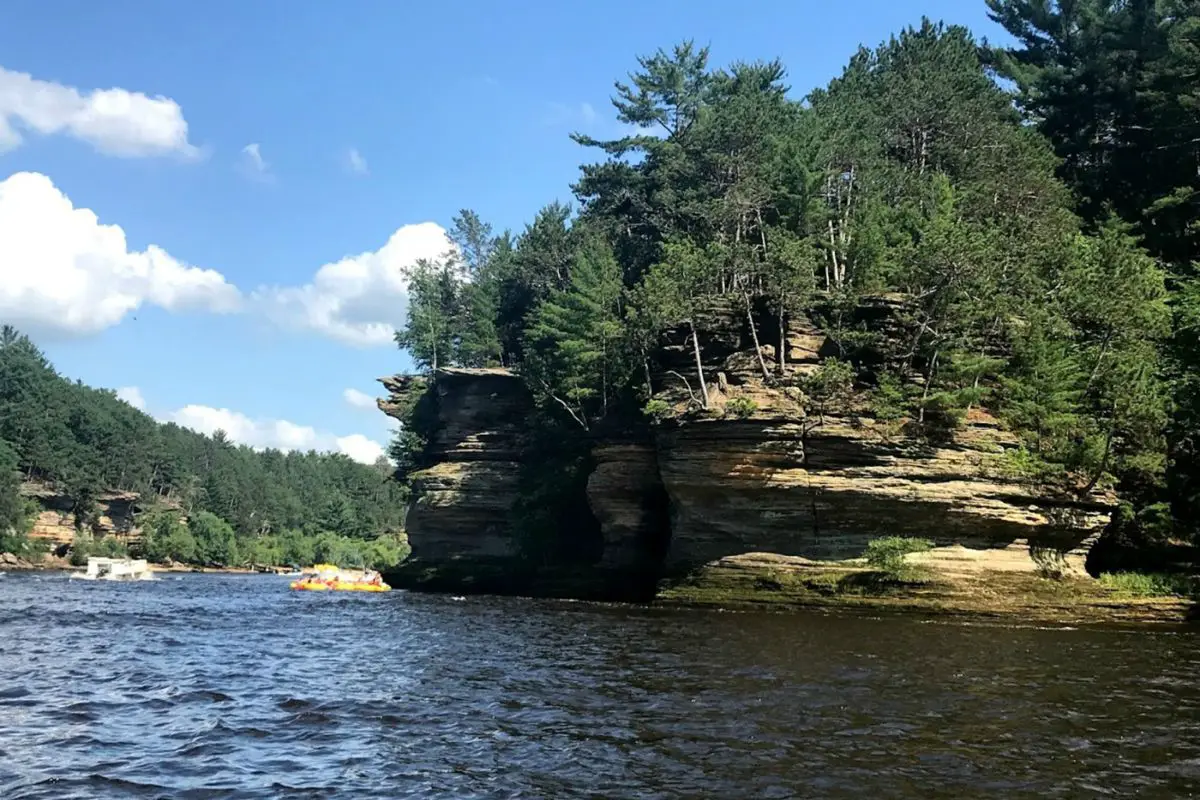
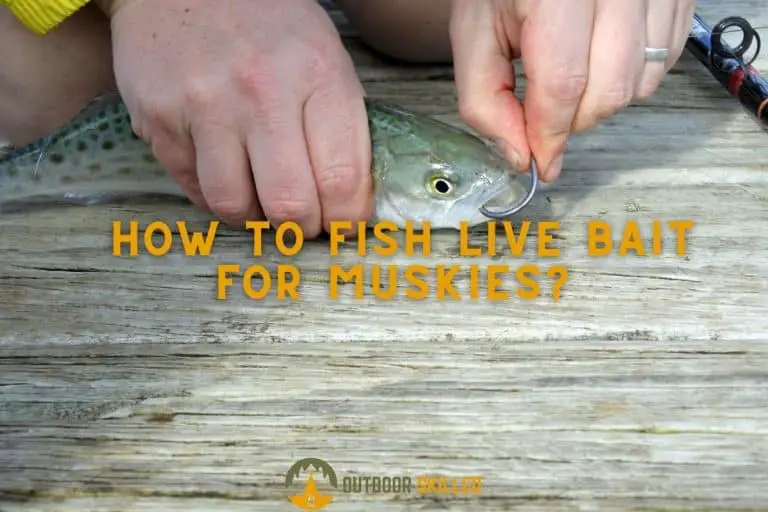
![Why Do Muskies Swim With Their Head Out of the Water? [Simply Explained]](https://outdoorskilled.com/wp-content/uploads/2021/10/Muskie-swimming-with-the-head-above-water-768x512.jpg)



